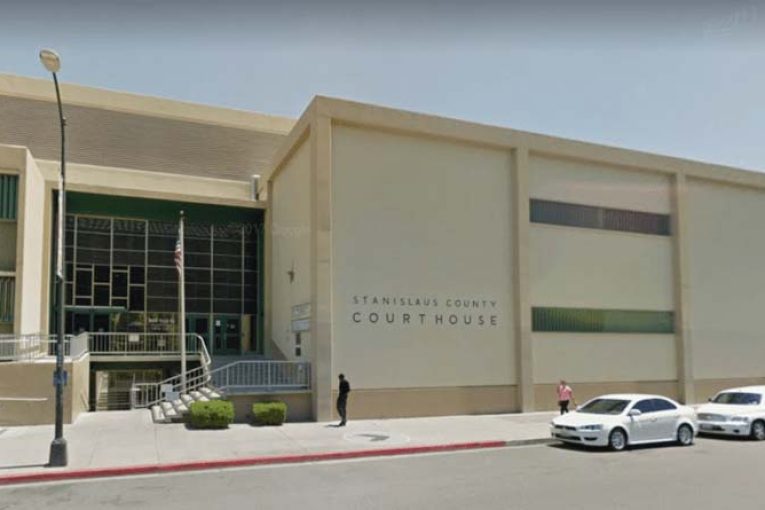
 By Paulina Buelna
By Paulina Buelna
MODESTO, CA – Stanislaus County Superior Court Judge Linda A. McFadden reconvened a hearing here Tuesday when the arresting officer—and even the alleged victim, who was fined $1,500 for not appearing in court—were unable to identify in court a woman accused of vehicle embezzlement.
Son Lubin was the officer who took a statement from a victim who claimed she let a friend borrow her car. But the friend failed to return the car and refused to answer any of the 20 messages or calls the victim made to her about the car, said Officer Lubin.
In June 2020, when the case was officially filed by Lubin, the victim revealed the car’s total price she bought it for, $1,700, and showed the officer a photo of the accused on her Facebook.
The officer admitted that he did not recognize the accused’s face in court, even when the mask was removed to show the face more clearly. 
The victim was also not able to distinctively identify the accused as the person who committed the crime as she was not present in the courtroom—she was later fined the $1,500 for not showing up to court.
Since both parties were not able to distinguish the accused as the person who did the crime, the prosecutor was left to try to help the officer identify the women more clearly through other photos.
The prosecutor first asked “do you think you can’t recognize the defendant right now because of her hair color,” because apparently the defendant had dyed her hair since the crime was filed.
The officer didn’t know if he couldn’t identify her because of the hair, or if he just couldn’t fully remember what she looked like.
After asking that question the prosecutor attempted to show the Facebook photo the victim had allegedly shown the officer of the accused when he filed the case.
However, Judge McFadden did not allow the prosecutor to show him the Facebook photo because it was on her laptop and not printed out.
The prosecutor failed to prove that the defendant was the person the victim identified as committing the alleged crime.
The case will proceed, where the prosecution says they will be able to present someone to clearly identify the accused as committing a crime. If they cannot, the charges will be dismissed.
